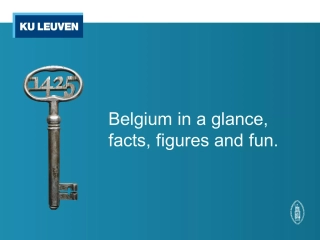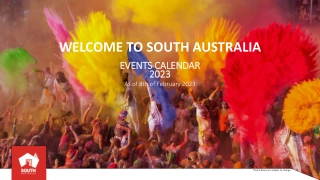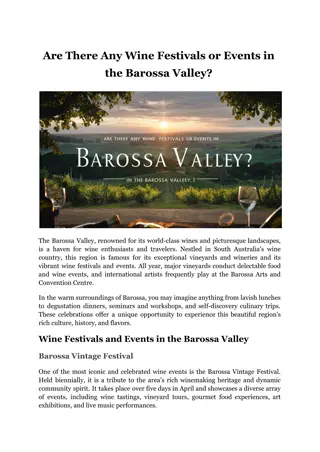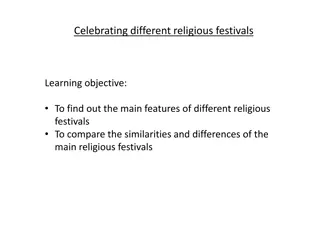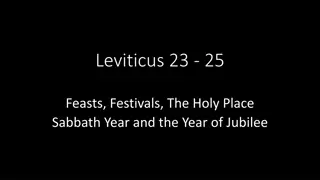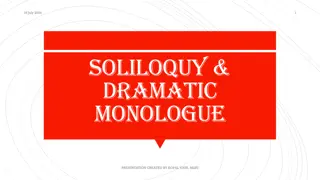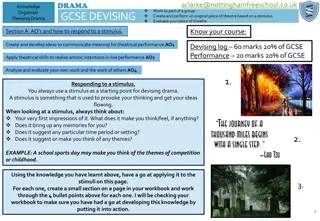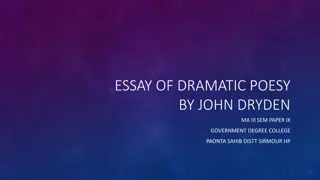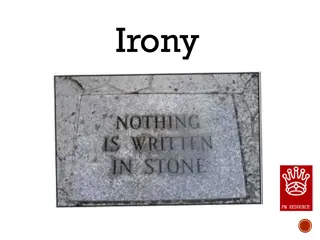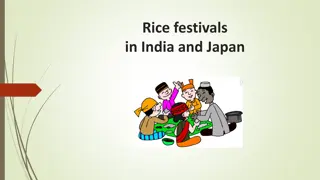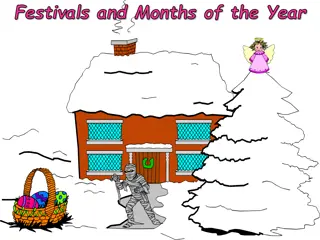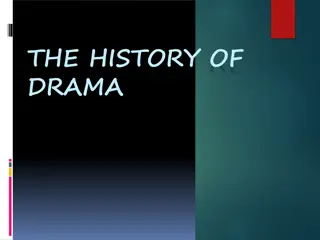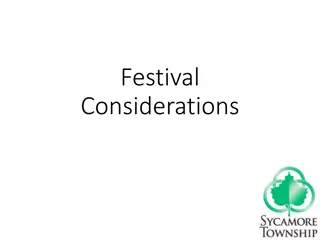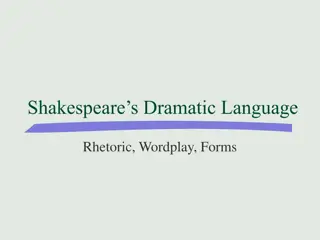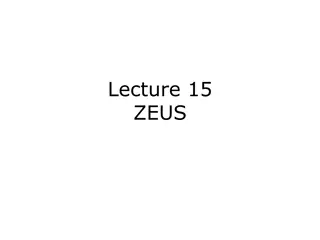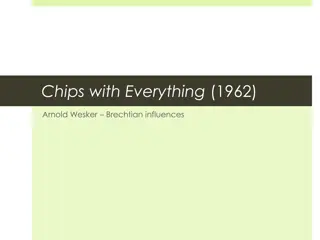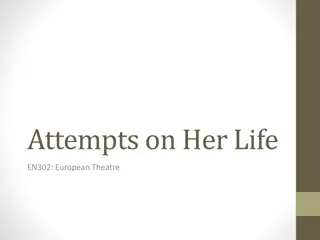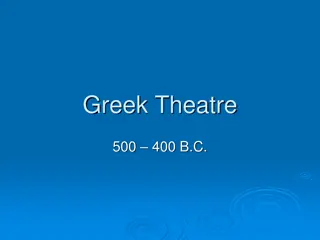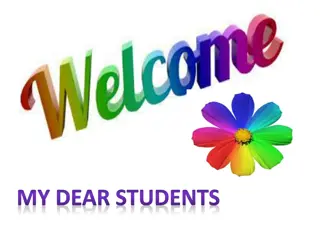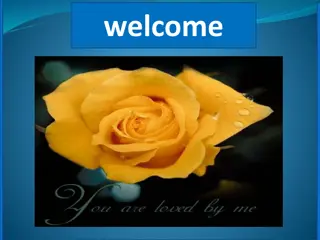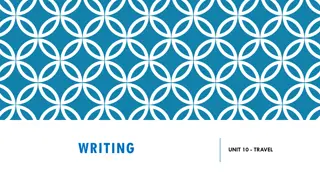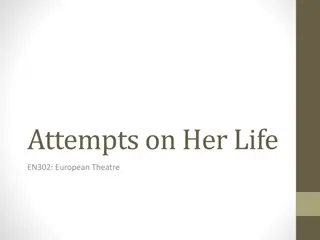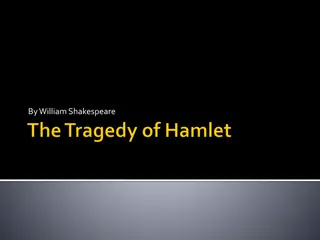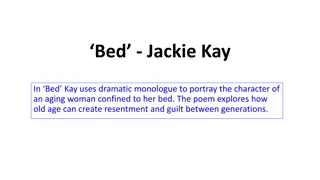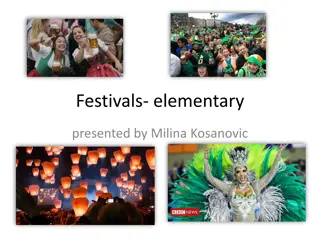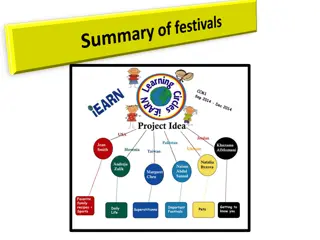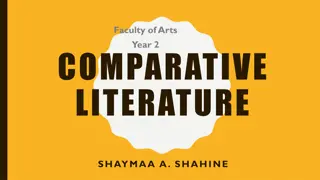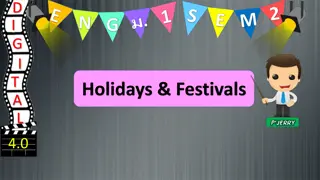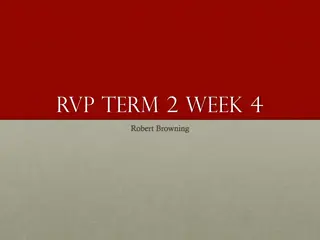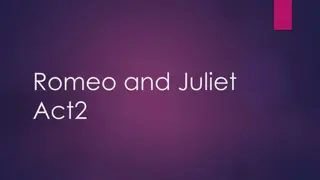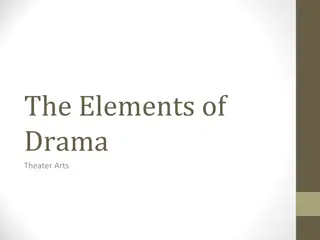Belgium in a Glance: Facts, Figures, and Fun
Discover the essence of Belgium through facts, figures, and fun. Learn about the political and organizational structure, business opportunities, and the country's vibrant culture and festivals. Explore Belgium's rich history and its renowned lifestyle.
22 views • 18 slides
Welcome to South Australia
Explore the official events calendar for South Australia in 2023. Discover a diverse range of festivals, exhibitions, concerts, and more. Stay updated with event dates, subject to change.
3 views • 5 slides
Discover the Vibrant World of HASSRA - Join Today!
Dive into the dynamic realm of HASSRA, an inclusive association welcoming nearly 60,000 members nationwide. Explore a multitude of sporting, recreational, and cultural activities, along with enticing membership benefits. HASSRA hosts exciting weekend festivals and a plethora of local events for all
1 views • 14 slides
Upstream 3 3rd Intermediate Semester 2
This educational material focuses on various celebrations and customs, encouraging students to read for specific information, describe celebrations using adjectives, and discuss preferences related to festivities. The content includes identifying celebrations in images, matching festivals with custo
0 views • 25 slides
Are There Any Wine Festivals or Events in the Barossa Valley
Uncorking Barossa Valley's best! Discover upcoming wine festivals, tastings, and events to sip, swirl, and savor the region's renowned wines.
1 views • 4 slides
Understanding Religious Festivals: Easter, Eid al-Fitr, and Diwali
Delve into the main features of Easter, Eid al-Fitr, and Diwali, exploring their significance, traditions, and celebrations. Compare the similarities and differences of these major religious festivals in Christianity, Islam, and Hinduism, showcasing diverse cultural practices and beliefs.
2 views • 7 slides
Understanding the Feasts and Festivals in Leviticus
Explore the significance of the feasts, festivals, and rituals outlined in Leviticus, such as Passover, the Feast of Unleavened Bread, and the Day of Atonement. Discover how these observances served to set the Israelites apart and foster spiritual growth and connection with God.
1 views • 14 slides
Understanding Soliloquy and Dramatic Monologue in Literature
A soliloquy is a form of monologue where a character speaks to themselves, the audience, or a surrogate, revealing inner thoughts. This presentation explores different types of soliloquies and their significance in literary works, including examples from Shakespeare's Hamlet. Additionally, it delves
0 views • 9 slides
Devising Drama - GCSE Knowledge Organiser
This GCSE Drama Knowledge Organiser provides guidance on devising and performing an original piece of theatre based on a stimulus. It covers how to respond to stimuli, develop ideas for theatrical performances, apply theatrical skills, analyze and evaluate work, and rehearse and refine the devised p
0 views • 10 slides
Debate on Dramatic Poesy by John Dryden
John Dryden's work "Essay of Dramatic Poesy" is a dialogue among four speakers that debates the merit of classical versus modern drama, the comparison between French and English drama, and the use of rhyme in plays. Each speaker presents arguments showcasing their perspectives on these topics, revea
0 views • 5 slides
Understanding Irony in Verbal, Dramatic, and Situational Contexts
Explore the nuances of verbal, dramatic, and situational irony through examples and explanations. Verbal irony involves saying something different from what is meant, often using humor like puns. Dramatic irony occurs when the audience knows something the characters don't, creating suspense. Situati
0 views • 12 slides
Vibrant Rice Festivals in India and Japan
Explore the cultural richness of rice festivals in India and Japan. From the Japanese Moon Festival to Makar Sankranti in India, experience the traditions, rituals, and delicious rice-based dishes that signify the importance of rice in these vibrant celebrations.
1 views • 6 slides
Explore Festivals and Important Dates Throughout the Year
Delve into a visual journey of various festivals celebrated each month, including Christmas on December 25th, Valentine's Day on February 14th, New Year's Day on January 1st, Halloween on October 31st, Diwali in October or November, Easter in March or April, and Chinese New Year in January or Februa
0 views • 10 slides
The Art of Dramatic Writing: Exploring Character Development and Dialectical Approach
Every object and human has multiple dimensions that influence character development in dramatic writing. Understanding the physiological, sociological, and psychological aspects, along with the impact of the environment and dialectical approach, shapes characters' growth and decisions in storytellin
0 views • 12 slides
Celebrating Cultural and Religious Festivals Around the World
Explore the rich traditions and significance of various cultural and religious festivals celebrated globally, from New Year's Day and Christmas to Easter and Valentine's Day. These festivities bring people together in joy, reflection, and camaraderie, encompassing ancient rituals and modern customs
0 views • 12 slides
Exploration of Various Poetry Forms: Descriptive, Narrative, Dramatic, and Metaphysical
Poetry is a diverse art form encompassing descriptive portrayal, storytelling narratives, engaging dialogues, and profound metaphysical insights. Descriptive poetry vividly captures objects and scenes like paintings, narrative poetry weaves interconnected stories, dramatic poetry involves dialogues,
0 views • 11 slides
The Evolution of Drama: A Historical Journey
Drama, originating from ancient Greece, has evolved through the centuries from being a genre of poetry to a distinct theatrical form encompassing tragedy, comedy, and more. The masks of Thalia and Melpomene symbolize the essence of comedy and tragedy, while the Great Dionysia festival in Athens hono
0 views • 41 slides
Understanding Dramatic Monologue in Poetry through "Havisham
Dramatic monologue in poetry is a form where a solitary speaker addresses an audience, offering insight into a character's thoughts and emotions. This exploration often reveals complexities, conflicting viewpoints, and hidden truths. Through examining the character of Miss Havisham from Charles Dick
1 views • 43 slides
Insights on Festival Considerations and Financial Analysis
Explore a detailed analysis of various festivals, including the 2004-2019 Festival in Sycamore, Madeira Independence Day Festival, and Deer Park Days in the Park Festival. Compare revenue, expenses, and net costs, highlighting profitability factors such as beer sales. Discover ways to contribute to
0 views • 8 slides
Exploring Shakespeare's Dramatic Language and Themes
Shakespeare's dramatic language entails rhetoric, wordplay, and rich forms that offer both pleasure and challenges to readers. His verse showcases density and richness, with characters expressing thoughts through powerful metaphors and figurative language. Examples from "Macbeth" illustrate how imag
0 views • 40 slides
Exploring the Influence of Zeus in Ancient Greek Culture and Festivals
Delve into the multifaceted spheres of influence of Zeus, the king of gods, in ancient Greek society. Discover the rituals, festivals, and myths associated with Zeus, shedding light on his roles in weather, war, kingship, and social institutions. Experience the intriguing narratives of Prometheus' t
0 views • 10 slides
Understanding Irony: Verbal, Dramatic, and Situational Examples
Dive into the world of irony with examples of verbal, dramatic, and situational irony explained through scenarios like sarcastic comments, horror movie twists, and unexpected encounters. Explore how irony adds layers of meaning and depth to storytelling, from characters knowing more than others to o
0 views • 10 slides
Epic Theatre and Brechtian Influences in Modern Drama
Epic theatre, influenced by Bertolt Brecht, challenges traditional Aristotelian and Hegelian dramatic structures by emphasizing critical engagement and distancing strategies. It uses historical narratives and didactic elements to provoke social consciousness and active spectator participation, contr
0 views • 26 slides
Exploring European Theatre Traditions
European theatre traditions, as discussed through Lehmann's Postdramatic Theatre and Aristotle's dramatic elements, highlight the unique characteristics that differentiate them from non-European traditions. Concepts such as hamartia, anagnorisis, and mimesis are explored along with the rejection of
0 views • 30 slides
Evolution of Greek Theatre: A Journey Through History and Tradition
Explore the rich history of Greek theatre, from its origins in religious rites to the grand festivals of tragedies during the Golden Age of Greece. Discover the significance of dramatic performances in honoring the gods, the structure of ancient Greek theatres, and the cultural impact of iconic play
0 views • 12 slides
Understanding Different Festivals: International, National, and Religious Celebrations
Explore the significance of various festivals such as May Day, Pahela Baisakh, and Eid ul-Fitr in personal and social life. Learn about the historical background and cultural importance of these events. Discover how festivals like May Day honor the struggles and sacrifices of working people worldwid
0 views • 17 slides
Discovering Cultural Celebrations: Lessons on Events and Festivals
Explore the significance of events and festivals through engaging lessons focusing on talking about, questioning, and understanding their meanings. Students will enhance their abilities to express opinions logically and participate actively in cultural celebrations. The content includes images depic
0 views • 13 slides
Cultural Festivals Around the World
Discover the vibrancy of cultural festivals around the world, from the Lim Festival in Vietnam with its traditional costumes and folk games to the world-famous Rio Carnival in Brazil, known for its colorful costumes, music, and lively atmosphere. Engage in classroom activities like mixed letter game
0 views • 6 slides
European Theatre: Exploring Dramatic Elements and Themes
European theatre has a rich history and tradition that distinguishes it from other global theatre practices. From Aristotle's dramatic elements to the conflicts faced by characters like Antigone and Creon, this form of theater delves into themes of recognition, imitation, and conflict. Hans-Thies Le
0 views • 35 slides
Shakespearean Dramatic Techniques Analysis
Explore the intricate use of monologues, soliloquies, structural divisions, and emotional responses in William Shakespeare's plays. Delve into the dialogues between characters like Hamlet, Gertrude, and Claudius to uncover themes of love, madness, and expectation. Discover how Shakespeare utilizes d
0 views • 23 slides
Analysis of "Bed" by Jackie Kay: Themes, Form, and Use of Scots
Bed" by Jackie Kay is a dramatic monologue portraying the perspective of an elderly woman confined to her bed, exploring themes of aging, resentment, and guilt between generations. The poem uses Scots to add immediacy to the narrative, highlighting the woman's reliance on her daughter and contemplat
1 views • 34 slides
Explore Traditional Folk Festivals Around the World
Discover the fascinating world of traditional folk festivals with examples from various countries, including details on the festival names, when they occur, where they are held, and the significance and activities involved. From the lively Carnival in Rio to the historic Oktoberfest in Germany, delv
0 views • 7 slides
Global Celebration of Cultural Festivals - A Diverse Overview
Explore a vibrant tapestry of cultural celebrations and festivals from around the world, showcasing the unique traditions and festivities observed by different countries. From Eid Milad un Nabi in Pakistan to Independence Day in Jordan and beyond, this analysis captures the essence of joyous occasio
0 views • 12 slides
Exploring Character Creation and Dramatic Conventions in Drama Class
Using a short piece of text as a stimulus, students in a drama class dive into creating characters and exploring dramatic conventions to craft scenes depicting different aspects of their characters' lives. The story unfolds in Hell's Alley, where tension and conflict shape the protagonist's experien
0 views • 10 slides
Exploring Dramatic Forms: From Burlesque to Well-Made Plays
Dive into the world of dramatic forms, where Burlesque emerged in Medieval Drama and was revived in the Seventeenth Century to satirize serious works. Learn about high burlesque that parodies literary works like Alexander Pope's "The Rape of the Lock" and low burlesque that mocks serious subjects. D
0 views • 9 slides
Explore Different Holidays and Festivals Vocabulary
Learn and explore a variety of holidays and festivals vocabulary from around the world with engaging exercises and colorful images. From Halloween to Christmas, increase your festive word knowledge in English and Italian.
0 views • 14 slides
Analysis of Robert Browning's Dramatic Monologues and Implied Audience
In this content, we delve into the elements found in the dramatic monologues of Robert Browning, focusing on implied addressees, ideal recipients, and the implications of the dramatic form on the relationship between speaker, addressee, and reader. We explore how the presence of an implied audience
0 views • 5 slides
Analysis of Literary Devices in Romeo and Juliet Act 2
In Act 2 of Romeo and Juliet, the characters use various literary devices such as allusion, dramatic irony, hyperbole, and foreshadowing. Mercutio mistakenly believes Romeo is still in love with Rosaline, showcasing dramatic irony. Additionally, Friar Lawrence's words foreshadow the danger in Romeo
0 views • 10 slides
Understanding Irony: Types, Purpose, and Examples
Irony is about expectations and contrast between reality and what is being said. It can add interest, depth, suspense, and humor to texts. The three types of irony are verbal, dramatic, and situational, each serving a unique purpose to engage the audience. Examples from popular stories like Beauty a
0 views • 12 slides
Understanding Drama: The Art of Theater Expression
Drama, originating from the Greek word "Dran" meaning to act, is a form of storytelling performed in front of an audience. It differs from prose and poetry by providing a unique experiential aspect through live enactments. Essential elements such as playwrights, actors, acts, scenes, and dramatic sp
0 views • 15 slides
